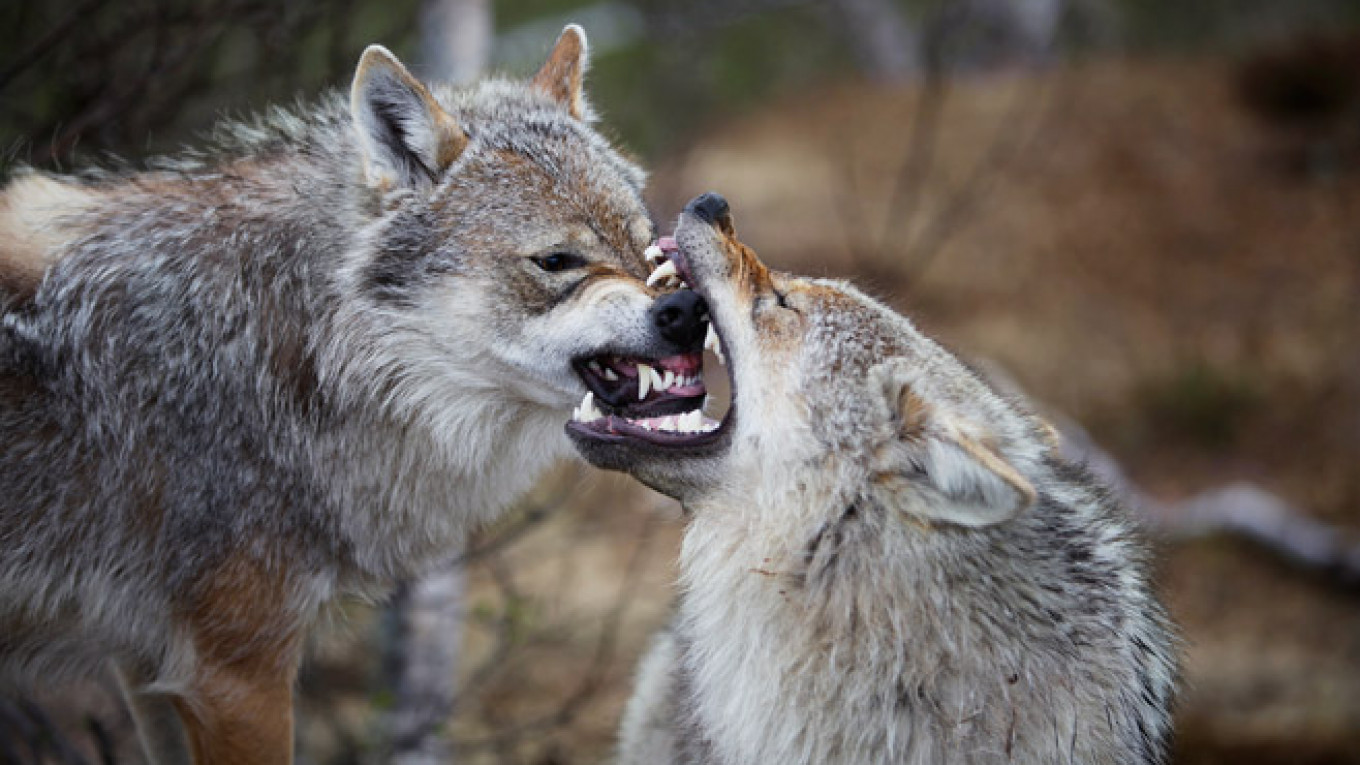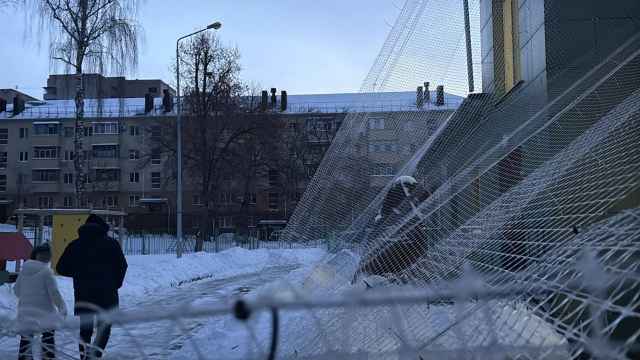The turbulent years after the Soviet collapse that brought suffering to many Russians also dealt a blow to the nation's wildlife, many of whose species declined in numbers during that period, a recent study indicates.
The population of animals such as wild boars and moose dwindled in the early 1990s, apparently due to poaching, an erosion of environmental controls and a decline in agricultural crops on which the animals fed, research scientists said in an article published this month in Conservation Biology, a scientific journal.
But one species, conversely, saw its numbers grow: The gray wolf saw its population increase by 150 percent in the decade following the 1991 Soviet collapse, "likely due to the cessation of governmental population control" of the predator species — presumably also a side effect of economic upheavals, the article said.
The study, which was based on statistics from a long-term database compiled by the Russian Federal Agency of Game Mammal Monitoring, analyzed population trends of eight large mammals in Russia for three decades around the Soviet collapse, from 1981 to 2010.
"What we did was to prove there was a simultaneous decline for wild boar, brown bear and moose in most regions of Russia at the beginning of the 1990s, which was right after the collapse [of the Soviet Union]," a co-author of the article, Eugenia Bragina from the University of Wisconsin-Madison in the United States, told the BBC.
The differences between the species and their habitats indicate that the decline could not be attributed to changes in a particular habitat and was likely due to broader and more profound reasons, she was quoted as saying.
Wild boar were probably affected by "the loss of crops as forage because hunting managers did not plant these crops any more," Bragina was quoted as saying.
But the trend was reversed in later years, as the animals appeared to adapt and recover, according to the article.
In one example, the population of roe deer had reached its highest number for any period in the study by 2010, the article said.
Contact the author at [email protected]
A Message from The Moscow Times:
Dear readers,
We are facing unprecedented challenges. Russia's Prosecutor General's Office has designated The Moscow Times as an "undesirable" organization, criminalizing our work and putting our staff at risk of prosecution. This follows our earlier unjust labeling as a "foreign agent."
These actions are direct attempts to silence independent journalism in Russia. The authorities claim our work "discredits the decisions of the Russian leadership." We see things differently: we strive to provide accurate, unbiased reporting on Russia.
We, the journalists of The Moscow Times, refuse to be silenced. But to continue our work, we need your help.
Your support, no matter how small, makes a world of difference. If you can, please support us monthly starting from just $2. It's quick to set up, and every contribution makes a significant impact.
By supporting The Moscow Times, you're defending open, independent journalism in the face of repression. Thank you for standing with us.
Remind me later.






